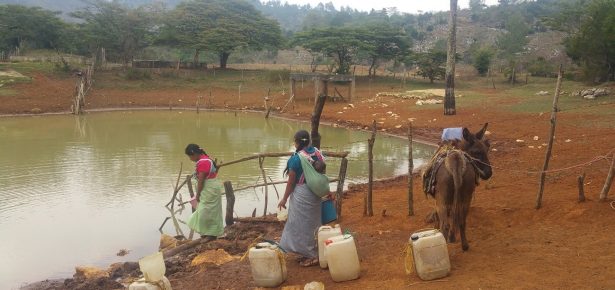
In 2010, the UN General Assembly adopted a resolution recognizing water and sanitation as human rights, with the support of more than 120 countries. This remarkable political stance opened space for a set of interpretations on the meaning of these rights and on how to translate this framework into practical actions. These rights are often considered part of the ecosystem of economic, social and cultural right, stating that everyone has the right to an adequate standard of living, states holding the obligation of creating a social environment in which there is a minimum level of social well-being, which must include access to adequate water and sanitation services.
However, this concept – of water and sanitation as rights – often remains a distant and abstract set of concepts for both the general population and agents working in the water sector. On the one hand, a little more than a decade is insufficient for a wide capillarisation of this decision for most countries and, within them, to everyone with responsibilities for providing water and sanitation services, from the national to the local level. On the other hand, introducing a new perspective on how to operate in any sector or public policy with a long tradition, particularly the water and sanitation sector, which has generally a conservative pattern, is always complex. This transformation is equivalent to a scientific paradigm shift.
The implication of this recognition is evident. Many people around the world do not have access to services that fully meet the requirements of the human rights framework, for reasons ranging from the way they access these services to their complete exclusion from decision-making on measures that impact them. Although there are no accurate statistics about how many persons face these situations, it can be estimated billions of people around the world is still far from fully enjoying something that constitutes a fundamental right of each and every person who lives on this planet: access to water and the disposal of their excreta in such a way as to promote their dignity and guarantee their right to life.
As to the causes for this, one can suggest that the obligation of states has been neglected in many circumstances, and for different reasons, characterising countless human rights violations. Or perhaps this reflects the hallmark of postmodernity: there is not enough room for everyone to reach a standard of living that minimally ensures such a basic quality of life, while at the same time many do not even realise that it is possible to live without such rights. A society divided between those who have and those who do not.
Those excluded from water and sanitation are precisely those excluded from many other economic and social rights, such as health, education, housing and access to a minimally decent standard of goods and services. They are also often excluded from access to justice, the right to be elected and to elect their representatives, and to enjoy their right to expression. And, as already highlighted by the environmental injustice movement, they are the most affected by unacceptable environmental impacts, on a local, national and global scale, originating from the predatory economy that we have been increasingly experiencing.
An important question, both about the deficit of compliance with the human rights to water and sanitation and its pattern of inequality and exclusion, refers to the structural reasons for these processes. Certainly, the roots of this framework can be found in the very way societies organise themselves and how development models are shaped. However, there are important drivers that are internal to the water sector itself and to its traditions. Evidently, both spheres are not independent, and structural causes also explain the sector’s stance.
An analytical framework for approaching this concept would state that the realization or the violation of the human rights to water and sanitation results from structural drivers that shape policies and the patterns of inclusion and exclusion of individuals and population groups in access to services is are, is dependent on policies and the extent to which they are aligned with the human rights framework, and affects people, in particular those living in vulnerable situations and that are discriminated by the social structure in different contexts.
Latest Comments
Have your say!